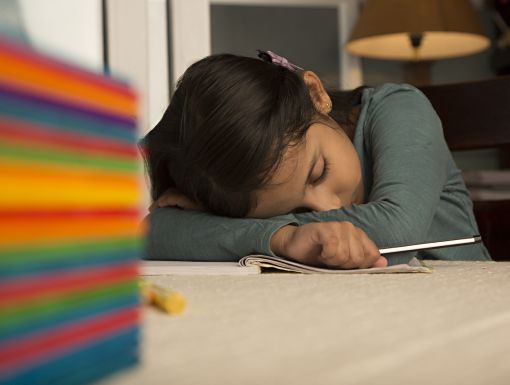
How Does Caffeine Affect My Child: Top 3 Things To Know
In today's fast-paced world, coffee and other caffeinated beverages are increasingly popular, not just among adults and college students, but also among teens. With its stimulating effects, caffeine is often seen as a quick fix for fatigue. However, the question arises: Is it safe for children and teens to consume caffeine?
What is caffeine?
Caffeine is a natural stimulant commonly found in coffee, tea, energy drinks, and certain sodas. It works by stimulating the central nervous system, leading to increased alertness and concentration. As the pace of life accelerates, many young people turn to caffeinated products to keep up with academic and social demands.
What are caffeine safety concerns?
The Food and Drug Administration (FDA) states that up to 400 milligrams of caffeine per day is generally safe for healthy adults. This is roughly equivalent to four 8-ounce cups of coffee. However, children and teens are more sensitive to caffeine's effects due to their smaller body size and developing systems. The American Academy of Pediatrics advises against caffeine consumption for young individuals, particularly from energy drinks and other highly caffeinated products.
For adults, moderate caffeine consumption is considered safe. However, the situation is different for children and teens. Since they are more susceptible to caffeine's impact on the nervous and cardiovascular systems, even small amounts can lead to significant effects.
What are side effects of caffeine?
Sources of caffeine include many sodas, coffee, tea, energy drinks and foods such as energy bars and chocolate. Consuming too much caffeine can cause sleep problems, mood and behavioral issues (panic, anger, anxiety), and potential health issues such as increased heart rate, high blood pressure and acid reflux. After long-term use, there is also the possibility that a child may become too dependent on the effects of caffeine and experience symptoms of withdrawal such as headaches, exhaustion and the inability to concentrate. Caffeine can be dangerous for kids, and in high doses, it can be toxic.
According to the Food and Drug Administration, caffeine can lead to several adverse effects in children and adolescents. These include:
- Insomnia
- Jitters
- Anxiousness
- Fast heart rate
- Upset stomach
- Nausea
- Headache
- A feeling of unhappiness (dysphoria)
What are caffeine alternatives?
While some enjoy the taste and social ritual of coffee, others rely on caffeine to compensate for inadequate sleep. Establishing healthy sleep habits is vital for children and teens. Adequate sleep is essential for their development, with children aged 6-12 needing nine to 12 hours and those aged 13-18 requiring eight to 10 hours nightly. Encouraging a regular sleep schedule and minimizing screen time before bed can significantly improve sleep quality.
How to promote healthy sleep habits?
Parents can foster better sleep by:
- Limiting screen time: Turn off electronic devices at least 30 minutes before bedtime to promote natural melatonin production.
- Creating a calming routine: Encourage activities like reading or taking a warm bath to signal bedtime.
- Setting the right environment: Ensure the bedroom is cool, quiet, and comfortable.
If your child struggles with concentration or experiences persistent fatigue, underlying health issues such as sleep disorders, stress, or anxiety may be factors. Consulting a healthcare professional is essential to identify and address these concerns effectively. Regular check-ups with a pediatrician can provide guidance on dietary and lifestyle adjustments to support your child's overall well-being.
While caffeine is a widely consumed stimulant, its effects on children and teens warrant caution. By prioritizing healthy sleep practices and consulting healthcare professionals, parents can help ensure their children’s health and development remain on track.
Make an appointment with a pediatrician at Ochsner Health.


